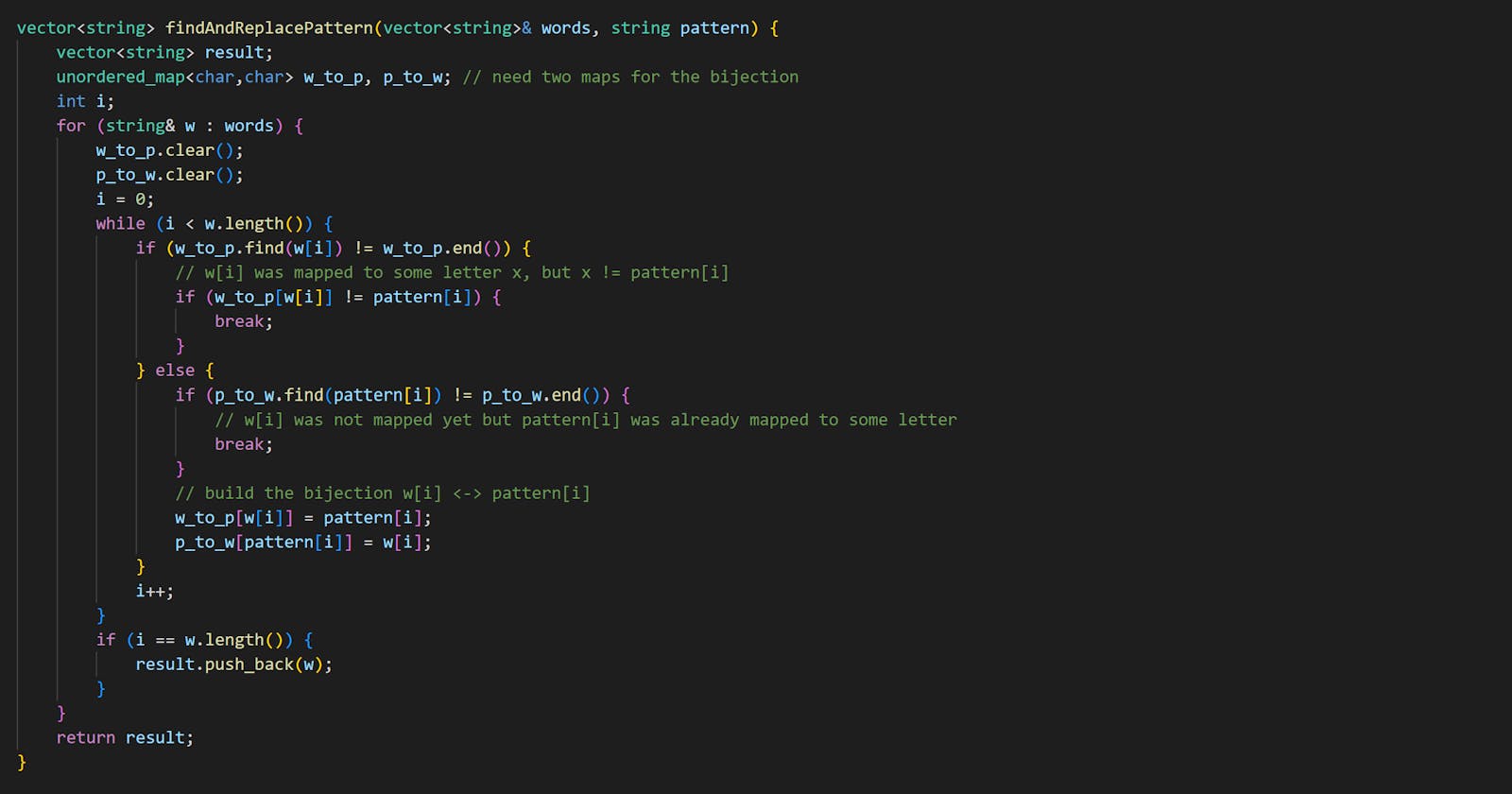How to solve Leetcode 890. Find and Replace Pattern
How to create a bijection map
Problem statement
Given a list of strings words and a string pattern, return a list of words[i] that match pattern. You may return the answer in any order.
A word matches the pattern if there exists a permutation of letters p so that after replacing every letter x in the pattern with p(x), we get the desired word.
Recall that a permutation of letters is a bijection from letters to letters: every letter maps to another letter, and no two letters map to the same letter.
Example 1
Input: words = ["abc","deq","mee","aqq","dkd","ccc"], pattern = "abb"
Output: ["mee","aqq"]
Explanation: "mee" matches the pattern because there is a permutation {a -> m, b -> e, ...}.
"ccc" does not match the pattern because {a -> c, b -> c, ...} is not a permutation, since a and b map to the same letter.
Example 2
Input: words = ["a","b","c"], pattern = "a"
Output: ["a","b","c"]
Constraints
1 <= pattern.length <= 20.1 <= words.length <= 50.words[i].length == pattern.length.patternandwords[i]are lowercase English letters.
Solution: Construct the bijection and check the condition
Code
#include <iostream>
#include <vector>
#include <unordered_map>
using namespace std;
vector<string> findAndReplacePattern(vector<string>& words, string pattern) {
vector<string> result;
// need two maps for the bijection
unordered_map<char,char> w_to_p, p_to_w;
int i;
for (string& w : words) {
w_to_p.clear();
p_to_w.clear();
i = 0;
while (i < w.length()) {
if (w_to_p.find(w[i]) != w_to_p.end()) {
// w[i] was mapped to some letter x
// but x != pattern[i]
if (w_to_p[w[i]] != pattern[i]) {
break;
}
} else {
if (p_to_w.find(pattern[i]) != p_to_w.end()) {
// w[i] was not mapped to any letter yet
// but pattern[i] was already mapped to some letter
break;
}
// build the bijection w[i] <-> pattern[i]
w_to_p[w[i]] = pattern[i];
p_to_w[pattern[i]] = w[i];
}
i++;
}
if (i == w.length()) {
result.push_back(w);
}
}
return result;
}
void printResult(const vector<string>& result) {
cout << "[";
for (const string& s : result) {
cout << s << ",";
}
cout << "]\n";
}
int main() {
vector<string> words{"abc","deq","mee","aqq","dkd","ccc"};
auto result = findAndReplacePattern(words, "abb");
printResult(result);
words = {"a", "b", "c"};
result = findAndReplacePattern(words, "abb");
printResult(result);
}
Output:
[mee,aqq,]
[a,b,c,]
Complexity
Runtime:
O(N*L), whereN = words.lengthandL = pattern.length.Extra space:
O(1)ifNorLis very larger than 26. The mapsw_to_pandp_to_wjust map between 26 lowercase English letters.

